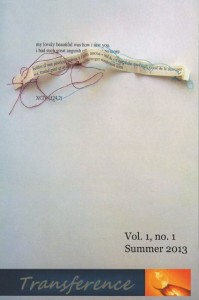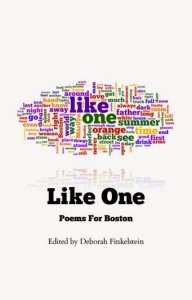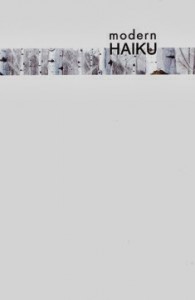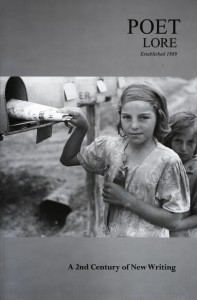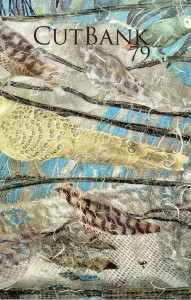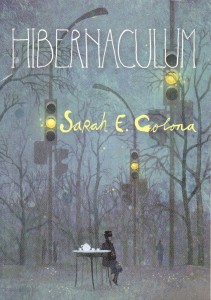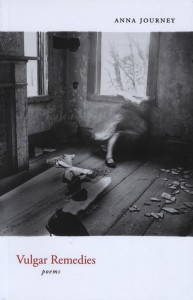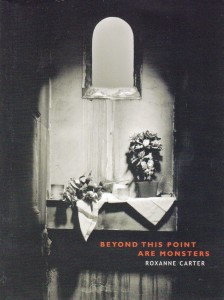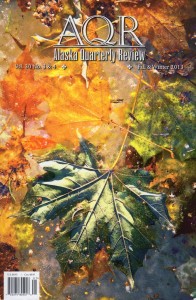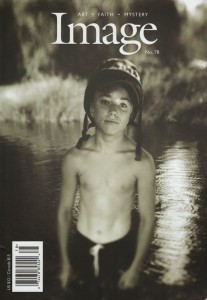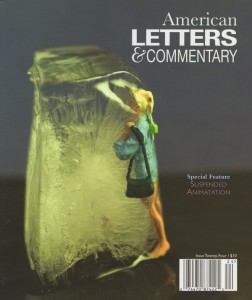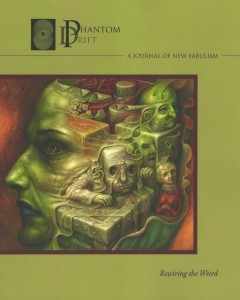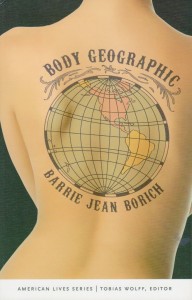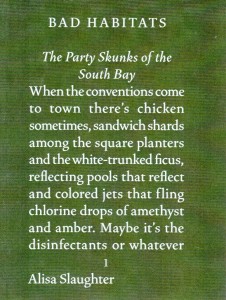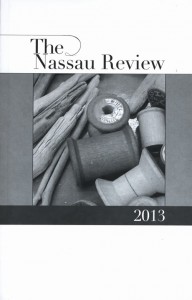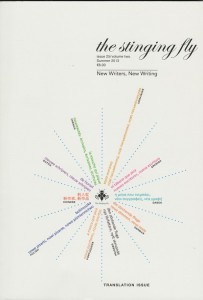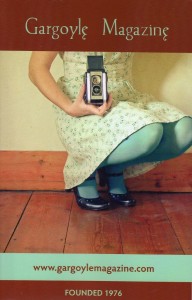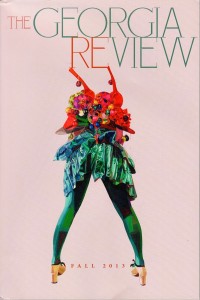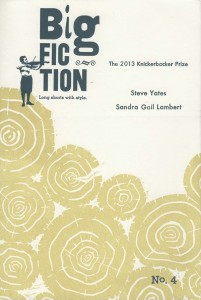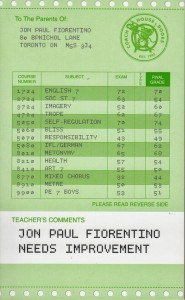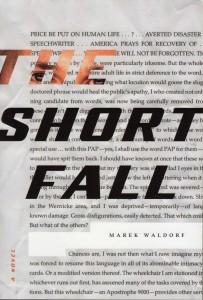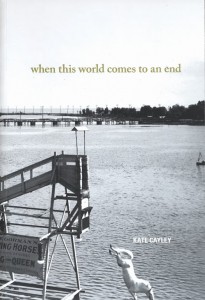The Main Street Rag is published quarterly out of Charlotte, North Carolina. This issue opens with an interview with photographer Bryce Lankard, whose photos grace the cover and are included within the pages of text. The interview is a contemplative discussion of art and its purposes from Lankard’s point of view. His photos after Hurricane Katrina serve two purposes, “one to address the public debate and a second to address the loss.” He goes on to say that he “wanted to show New Orleans as flawed yet beautiful” and “remind people of the city’s cultural uniqueness and how rich it had been in providing the fabric of America—so the rest of the country would not abandon New Orleans.” His NOLA photographs accomplish these objectives. His 9/11 photographs reveal where the photographer was when the planes hit the towers and show life moving at an accustomed pace even in those moments. Lynda C. Ward’s interview illustrates Lankard’s passion and approach to the world. Continue reading “Main Street Rag – Summer 2013”
NewPages Blog
At the NewPages Blog readers and writers can catch up with their favorite literary and alternative magazines, independent and university presses, creative writing programs, and writing and literary events. Find new books, new issue announcements, contest winners, and so much more!
Main Street Rag – Summer 2013
Spread the word!
The Masters Review – October 2013
It could be said that The Masters Review presents the same value proposition as do The Best New American Voices, The New Yorker’s “20 under 40” fiction showcase, and Poets & Writers listings of leading new poets. That value proposition is the culling of new talent from diverse sources, a way of framing a structure of gifted writers today under the strong light microscope of editorial review. Continue reading “The Masters Review – October 2013”
Spread the word!
Neon Magazine – 2013
Neon hails from the UK where Editor Krishan Coupland accepts works from around the globe. Neon favors literary and slipstream short-form writing: “We err towards the dark, and like to experiment with language and form” with “a particular taste for the apocalyptic.” Dark and apocalyptic has never been my style, so it makes me wonder how I found such comfort in much of what I read here. Continue reading “Neon Magazine – 2013”
Spread the word!
theNewerYork – 2013
Because theNewerYork is a different breed of literary magazine entirely (“We are changing the publishing world,” the website states), it’s only fitting to go with an unconventional review, in this case, “An Imagined Instructional Editorial List (in Review)”: Continue reading “theNewerYork – 2013”
Spread the word!
Paddlefish – 2013
Plain, and rooted in the plains: that’s what remained with me after I finished reading Paddlefish, the annual literary journal from Mount Marty College in Yankton, South Dakota. A photograph of a boundless golden field and blue skies spreads over the front and back covers; the book reviews visit the Nebraska landscape and snippets in South Dakotan history; the stories and poems touch on post-military and Native American life. Paddlefish is plain, too, in its subjects, sentiments, and language. The reader is often told exactly what the writer is thinking, a mode that may appeal to some but which, to others, may leave too little to the imagination. Continue reading “Paddlefish – 2013”
Spread the word!
Ploughshares – Fall 2013
Travis Holland’s “Planet of Fear” is one of a number of brilliant stories in this all-fiction issue of Ploughshares, edited by Peter Ho Davies. Holland writes beautifully. Three strands make a rich, bright braid: the narrator’s work with an exceptional youth in a boys’ correction facility, his frustration with his dementia-disabled father, and his love for his smart but innocent five-year-old daughter. Scenes slide seamlessly from one of these strands to another, the tension level rising slowly, steadily, as the client is bullied, the father drifts further and further from his original professorial authority, and the daughter grows into her own. Each episode is wonderfully drawn. Of a “nature walk” through an unfinished housing development with the daughter, Holland writes: Continue reading “Ploughshares – Fall 2013”
Spread the word!
Prairie Schooner – Fall 2013
The cover of this issue of Prairie Schooner greets the reader with an impressionist autumn scene painted by Faridun Zoda. The inviting image is appropriate; the editors have chosen work that compels the reader to take a step back and enjoy a moment of quiet contemplation. Continue reading “Prairie Schooner – Fall 2013”
Spread the word!
The Reader – Summer 2013
Brian Nellist’s essay “People Don’t Read Scott Any More,” originally published in the Spring 1997 issue of The Reader, may have summed up a movement with an essential added value of literature: “the answer is experto crede, not ‘Trust the professional’, heaven forbid, but ‘have faith in the man who’s tried it.’” The idea represents a logical extension of trust in precedent—that we can look to literature as a forerunner to lives we haven’t lived and perhaps never will. We are all witnesses, but in a limited sense. Reading is the addenda to our lives. He adds at the end of the excerpt something else of vital importance to the enterprise of reading: Continue reading “The Reader – Summer 2013”
Spread the word!
Willow Springs – Fall 2013
Willow Springs is a long-standing literary magazine, publishing works by well-known and up-and-coming writers alike for the past 30 years. The first thing that struck me when I began reading it was that there was not a specific theme noted anywhere or an editor’s note. While the magazine’s goal is to “engage its audience in an ongoing discussion of art, ideas, and what it means to be human,” this is a very general goal that can go in a number of directions. While it isn’t necessary to have a theme, the individual pieces themselves work together in a way to create themes in the reader’s mind; the one that stood out to me was of the things inside us—the hidden talents we aren’t aware of; the twisted desires we will never admit; the work of art we haven’t unlocked. Continue reading “Willow Springs – Fall 2013”
Spread the word!
Psychopomp Magazine – Fall 2013
Psychopomp Magazine, a new online fiction quarterly, aims to publish work that “defies genre and isn’t afraid to go beyond the confines of traditional form.” Their first issue is a testament to that. Continue reading “Psychopomp Magazine – Fall 2013”
Spread the word!
Sixfold – Fall 2013
Reviewing Sixfold is an entirely different game due to the way submissions are selected. Instead of being voted on by a judge or editors of the magazine, submissions are voted on by other writers that submit, working their way up the ranks until the top 3 are selected for prizes and others are selected for inclusion into the issue. Continue reading “Sixfold – Fall 2013”
Spread the word!
Chantarelle’s Notebook – October 2013
Starting off this issue of poetry magazine Chantarelle’s Notebook is a poem that easily reveals its insight, a trait found throughout the issue. LaMar Giles’s “Uninspired” pokes fun at current popular music, noting that “a sudden breeze / moves me more / than music nowadays.” It’s short, fun, and makes its point clear. Continue reading “Chantarelle’s Notebook – October 2013”
Spread the word!
Fogged Clarity – September/October 2013
Executive Editor Ben Evans writes that he hopes readers will find, in Fogged Clarity, “something resonant here, something stirring and poignant . . .” The sole fiction piece, Benjamin Roesch’s “If You’re Listening to This,” resonates with me. It is a heartfelt look into Luke’s lifelong struggle to remember his father and feel his father’s love for him. Now married to Jasper, Luke donates his sperm to his ex-wife, who is also gay and wants to have a baby in France with her wife. What seemed at first a brainless act, becoming a biological father turns out to be a bigger deal for Luke than he would have guessed. Eager to tell his new daughter that he loves her and will always be there in the way his own father couldn’t, Luke runs into conflict when her mothers tell him that they don’t plan to tell their daughter who the donor is. It’s definitely a standout piece, right from the very beginning, which is definitely an attention getter: “Luke found himself in a small room with no windows. There was porn of all persuasions. There were tissues and baby wipes. There was Jergens almond scented lotion.” Continue reading “Fogged Clarity – September/October 2013”
Spread the word!
foam:e – April 2013
foam:e, an Australian online poetry annual, is now in its tenth year. Because of its origin, I am lost on some of the details, references, and government issues, but overall, the issue was an enjoyable array of poetry, varying in topic, form, and tone. Continue reading “foam:e – April 2013”
Spread the word!
Haiku Wanted!
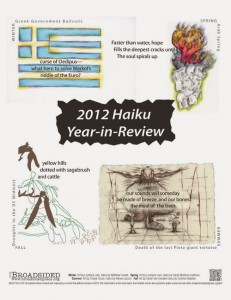 Every year, Broadsided hosts the annual Haiku Year-In-Review (henceforth referred to as HYIR). The collective has posted four topics responding to an event that seemed significant in each season of 2013. Now they want your haiku! In December, they’ll post the best entries for each season along with art created on the same subject and ask YOU to vote. January 1, 2014 they’ll be published as our featured broadside. Gorgeous and poignant year after year. Join in this great event!
Every year, Broadsided hosts the annual Haiku Year-In-Review (henceforth referred to as HYIR). The collective has posted four topics responding to an event that seemed significant in each season of 2013. Now they want your haiku! In December, they’ll post the best entries for each season along with art created on the same subject and ask YOU to vote. January 1, 2014 they’ll be published as our featured broadside. Gorgeous and poignant year after year. Join in this great event!
Spread the word!
Six Word War
Created by Shaun Wheelwright and Mike Nemeth, both US Army veterans, Six Word War is real stories from Iraq and Afghanistan in just six words. In partnership with Six-Word Memoirs and SMITH Magazine, this project is the first ‘crowdsourced’ war memoir that will “tell a story different than any other ever told about war. For the first time in history, one book will contain the collective experience of our military at war in their own words.” A book of the six-word stories is available now for preorder; all November pre-sales will be autographed first editions of Six Word War.
Spread the word!
Broadsided November
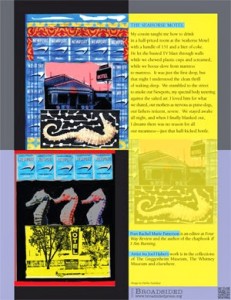 November’s Broadsided Press Collaboration, “The Seahorse Motel” features a poem by Rachel Marie Patterson, art by Ira Joel Haber, and design by Debbie Nadolney.
November’s Broadsided Press Collaboration, “The Seahorse Motel” features a poem by Rachel Marie Patterson, art by Ira Joel Haber, and design by Debbie Nadolney.
Edited by Elizabeth Bradfield, Gabrielle Calvocoressi, Sean Hill, Alexandra Teague, and Mark Temelko, Broadsided has been putting literature in the streets since 2005. Each month, a new broadside is posted both on the website and around the nation.
Writing is chosen through submissions sent to Broadsided. Artists allied with Broadsided are emailed the selected writing. They then “dibs” on what resonates for them and respond visually – sometimes more than one artist will respond offering a selection of broadsides.
Broadsided Vectors can do
wnload the poem in full color or black and white and poster it around town, campus, wherever! Check into becoming a Broadsided Vector today!
Spread the word!
Lit Mag Covers :: Picks of the Week
Transference is a brand new lit mag out of Western Michigan University that features translated work. The cover image is by Er
Spread the word!
South Dakota Review’s 50th Anniversary
The most recent issue of South Dakota Review is volume 50, honoring their 50th year anniversary. Editor-in-chief Lori Ann Roripaugh contributes an opening essay reflecting on the 50 years. In section eight of her essay, she writes, “For the past 50 years, poems, stories, and essays have migrated into the South Dakota Review office by land and by air, and—more recently—along the glittering veins of electronic networks. For the past 50 years, the magazine has come out on a quarterly basis . . . publishing a commemorative sampling of the last half-century’s literary culture.
“This shared exchange of textual aesthetic currency, of textual cultural memory, is truly a gift exchange, functioning within a gift economy, and the exchange of trust implicit in this 50-year legacy of shared gifting is both profoundly humbling, as well as a source of immense pride for all of us who have had the pleasure of working on the magazine.
“I think of this exchange of gifts as a body of work in constant motion and flux, traveling along highways and streets and flyways and networks like an elaborate circulatory system. A breathing organism. This perpetual inhale and exhale of language, art, and memory.”
Spread the word!
Poetry Anthology Helps Victims of Boston Marathon Bombings
As Thanksgiving and the season of gratitude approaches, consider purchasing a book that makes a difference with each sale. Like One: Poems for Boston, edited by Deborah Finkelstein, is a recent anthology that brings together pieces from a wide range of poets, from former Jersey City Poet Laureate Aaron Middlepoet Jackson to former U.S. Poet Laureate Robert Pinsky to Dickinson and Whitman. All proceeds from the book go to The One Fund, created last summer to assist victims of the Boston Marathon bombings and their families.
For a complete list of poets included and their bios, visit the poets page on the website. Like One can be purchased via the website or on Amazon.
Spread the word!
Modern Haiku Favorites of the Summer Issue
As always, the latest Modern Haiku reveals awards to the favorite haiku, senryu, and haibun from the previous issue (in this case, the Summer 2013 issue), selected and awarded $50 by an anonymous donor. Winners this time around are as follows:
Favorite haiku: by Jack Barry
last kid
left on the school bus
November rain
Favorite senryu: by Ken Jones
Catching myself
in the ovoid mirror
I try to look interesting
Favorite haibun: by Carol Pearce-Worthington
“In the Book of Dreams Told”
Spread the word!
New Book Reviews Posted
New book reviews are up! Check out the latest batch on our book review page. Books covered this month include:
The Forage House, poetry by Tess Taylor, Red Hen Press
War Reporter, poetry by Dan O’Brien, Hanging Loose Press
Paper Dreams: Writers and Editors on the American Literary Magazine, anthology compiled and edited by Travis Kurowski, Atticus Books
New Stories from the Midwest 2012, anthology edited by Jason Lee Brown and Shanie Latham,
Swoop, poetry by Hailey Leithauser, Graywolf Press
The Consummation of Dirk, fiction by James Callahan, Starcherone Books
Render: An Apocalypse, poetry by Rebecca Gayle Howell, Cleveland State University Poetry Center
The Year of What Now, poetry by Brian Russell, Graywolf Press
Dwelling in Possibility: Searching for the Soul of Shelter, nonfiction by Howard Mansfield, Bauhan Publishing
Scent of Darkness, fiction by Margot Berwin, Pantheon
Find some great new books to read this month, and look for more book reviews on Dec. 1.
Spread the word!
Lit Mag Covers :: Picks of the Week
“Even in the digital age, the letter exerts a mysterious pull . . . ,” write the editors. “But for the young girls on our cover [of Poet Lore], walking to the mailbox was a serious rural ritual, the day’s post a lifeline linking farm routes and cities, family and friends . . . What kind of lifeline does poetry offer, what kind of ‘news’?”
– – – – – – – – – – – – – – – – – – – – – – – – – – – – – – – – – –
I found that the colors on this issue of Cutbank are stunning, and if you look closer, you realize it’s a collage of birds. It’s a mixed media painting on canvas titled “The Birds of Wonderland” by Nanuka Tchitchoua in 2009.
– – – – – – – – – – – – – – – – – – – – – – – – – – – – – – – – – –
Lost in Thought‘s new cover (and the design of the issue as a whole) is definitely eye-catching. Unfortunately, I can’t locate the artist of the cover image, but it does indicate that the issue contains art by Haley Friesen and ink work by Nobuhiro Sato.
Spread the word!
The Forage House
“[S]he could see her story going on, her people there in the past—a way of imagining that grounds her,” writes Tess Taylor in her debut full-length poetry collection The Forage House (“Meeting Karen White, Descendent of Jefferson’s Gardener Wormley”). While these words describe someone other than the collection’s primary speaker, they prove an apt summary of Taylor’s first book: in The Forage House, we witness a personal discovery of family history and how it colors the speaker’s present. Throughout the collection, Taylor’s first-person speaker finds herself immersed in the vivid reality of her family’s past, a past that spans a period from Thomas Jefferson to a Confederate soldier who survived Gettysburg to her parents’ early years of marriage living in a Brooklyn commune. The Forage House presents the simultaneous distance and unshakeable presence of history through poems that bridge research and imagination, the distant past and the lived present. Continue reading “The Forage House”
Spread the word!
War Reporter
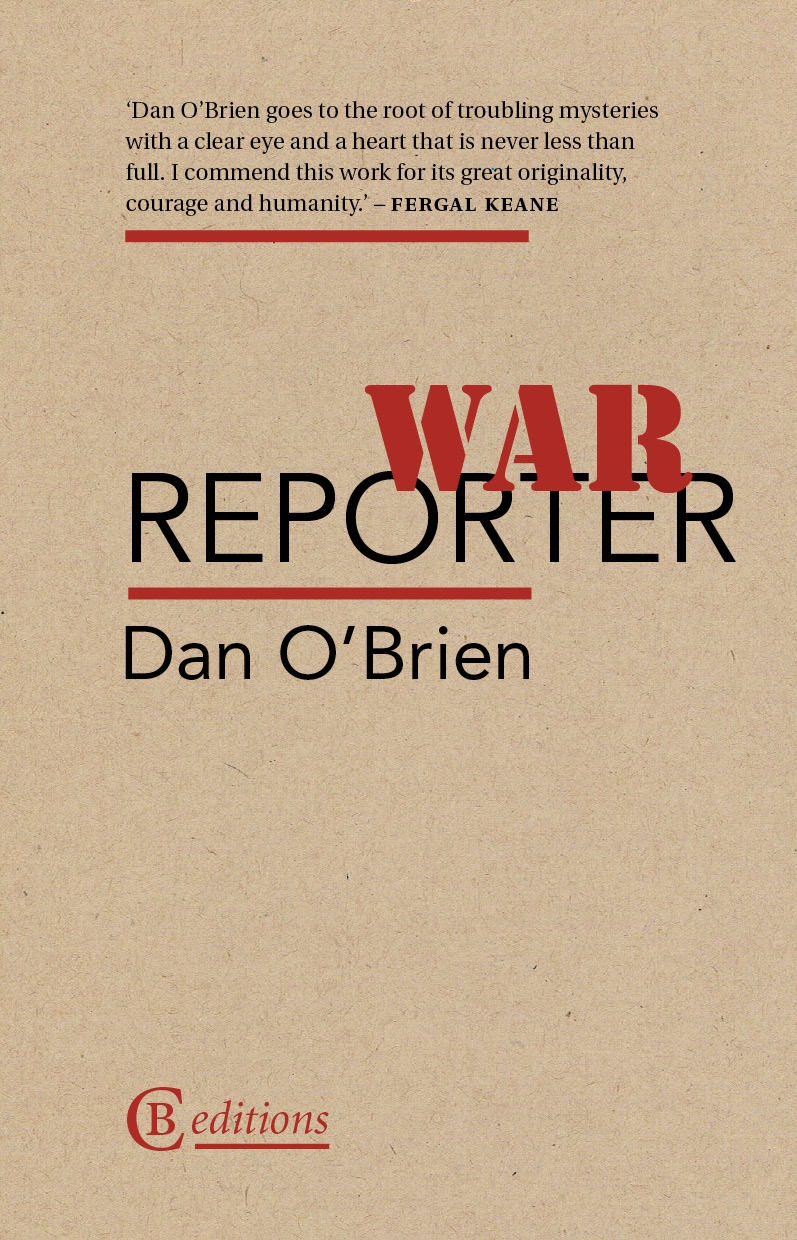 War Reporter tells a compelling story of war, conflict, and torment of the human spirit through a collection of poems based upon Dan O’Brien’s research, email exchanges, and interviews with photojournalist Paul Watson. Often the poems’ narrator is “The War Reporter Paul Watson on […]”. One of the most brilliant devices used in these poems is the heavy use of imagery. This comes as no surprise as these poems are being told from a photojournalist’s perspective. Very few poems from Watson’s narration read as his thoughts on a particular subject as much as they read like a series of snapshots through his photojournalistic lens to show his story. An example of this comes from “The War Reporter Paul Watson Considers the Peacekeepers”: Continue reading “War Reporter”
War Reporter tells a compelling story of war, conflict, and torment of the human spirit through a collection of poems based upon Dan O’Brien’s research, email exchanges, and interviews with photojournalist Paul Watson. Often the poems’ narrator is “The War Reporter Paul Watson on […]”. One of the most brilliant devices used in these poems is the heavy use of imagery. This comes as no surprise as these poems are being told from a photojournalist’s perspective. Very few poems from Watson’s narration read as his thoughts on a particular subject as much as they read like a series of snapshots through his photojournalistic lens to show his story. An example of this comes from “The War Reporter Paul Watson Considers the Peacekeepers”: Continue reading “War Reporter”
Spread the word!
Paper Dreams
In an opening piece (originally written in 2008) in Paper Dreams, Jill Allyn Rosser gives us “Reasons for Creating a New Literary Magazine,” beginning with, “There probably hasn’t been a new one created in the past six-and-a-half days.” Through this sarcastic piece, Rosser actually lists many reasons why you shouldn’t begin a new magazine. Among my favorites is, “There are serious, good, seriously good writers whose work is being completely ignored, and you are so nattily optimistic as to believe that literate people are going to read them in your new Yet Another Literary Magazine when they already have piles and unread piles of them . . .” Clearly, literary magazines are cropping up everywhere. And while there is an abundance of them, they are important in the literary culture. Continue reading “Paper Dreams”
Spread the word!
New Stories from the Midwest 2012
The editors selected twenty stories from more than three hundred submitted by literary journals, magazines, and small presses and arranged them to make up New Stories from the Midwest 2012. Editors Jason Lee Brown and Shanie Latham explain that the goals of the series are to “celebrate an American region that is often ignored in discussions about distinctive regional literature and to demonstrate how the quality of fiction from and about the Midwest (Illinois, Indiana, Iowa, Kansas, Michigan, Minnesota, Missouri, Nebraska, North Dakota, Ohio, South Dakota, and Wisconsin) rivals that of any other region.” In the introduction, Guest Editor John McNally, born and raised in the Chicago suburb of Burbank, writes: “If all politics is local, as Tip O’Neill once famously declared, then so is all fiction. The best fiction, it seems to me, is always strongly rooted in place.” These stories are linked by place, specifically the Midwest, where fierce winds blow in off the plains, corn stalks tower in ubiquitous rolling fields, snow begins before Thanksgiving and lasts long into spring, and ice freezes summer lakes. While the landscape and weather provide the settings and common themes for these stories, their universal appeal lies in the characters whose lives inhabit them. Continue reading “New Stories from the Midwest 2012”
Spread the word!
Swoop
“If it could speak it would offer / you excess; it would / offer you more.” Continue reading “Swoop”
Spread the word!
The Consummation of Dirk
When I began to write this I suddenly realized that in order to review Jonathan Callahan’s debut collection of short stories, The Consummation of Dirk, I’d have to invent a whole new set of adjectives. The writing contained within these covers is imaginative, wrought, out-of-the-box, and perhaps bordering on the avant-garde, all of which have been said about many works of literature and which, in the long run, tell you little. Yet, while reading his stories, I had a sense of the traditional narrative undergoing a transformation—I pictured Bruce Banner changing into the Hulk. These are stories trying to punch their way out of the bag. They are written with some edge and share varying degrees of foreboding. Continue reading “The Consummation of Dirk”
Spread the word!
Render
Rebecca Gayle Howell’s debut collection was selected by Nick Flynn for the 2012 Cleveland State University Poetry Center First Book Prize. In his foreword, Flynn writes: “To enter into these poems one must be fully committed, as the poet is, to seeing this world as it is, to staying with it, moment by moment, day by day.” Continue reading “Render”
Spread the word!
The Year of What Now
The poems in The Year of What Now by Brian Russell can catch an unsuspecting poetry reader off-guard, much like a sudden illness or the meeting of your future significant other. Within the opening two lines of the book’s first poem, we discover we will not be eased into this experience: “your hands were stained the urgent shade / of blood when I found you.” As readers continue, they will uncover sections of humor, as well as soft assuring language and soothing music within the poems. Every poem is written without any punctuation marks, except apostrophes. This tactic, although noticeable, doesn’t interrupt the flow or create uncertainty and confusion; instead, it makes the message clearer, helps readers directly connect with the narrator’s thoughts and share the narrator’s sensation of uncertainty. Readers are opened to accept the music of the moment with comforting sounds like “clack of keys,” repetition and rhythms like, “born from smoldering / Rome came crawling,” and unexpected rhymes like: Continue reading “The Year of What Now”
Spread the word!
Dwelling in Possibility
It’s hard to imagine a trope of Americana more ingrained in the public conscientiousness than purposeful living in New England. In Dwelling in Possibility: Searching for the Soul of Shelter, Howard Mansfield takes Thoreau’s call to “live deliberately” as a demand to examine the nature of shelter and the circumstances that create a home. These themes, he argues, are how people can engage with their culture and how they live in their spaces. Dwelling in Possibility, one could say, is Mansfield’s answer to “putting to rout all that is not life” (Walden-Pond-style) by calling direct and specific attention to what he sees as humanity’s un-purposeful living in their dwellings. Continue reading “Dwelling in Possibility”
Spread the word!
Scent of Darkness
This novel’s title and cover image, of reddish curls of smoke, inspires assumptions that another vampire story is lurking in our midst, quietly digging its fangs on an ever-crowded genre dominated by pale, gorgeous characters, 500-year-old blood-suckers whose sense of smell defies any human standard of keenness. In the novel’s first paragraph, the narrator’s revelation of a loss—of “something very special . . . running through [her] veins like a blessing, or a plague”—appears to support that impression, that perhaps she is referring to properties in her blood, of being trapped in the vacuum of eternity itself. Even the narrator’s name—Eva—has strong kinship to blood, old blood, the origin of blood, fallen, cast away from innocence, purity. It’s hard to say where our impression of vampires eventually fades in the story; Margot Berwin’s canvas is filled with shadows, quiet rooms with creaky doors, cloudy skies, and lonely roads, whether Eva is in the mountaintop town of Cyril, New York where her grandmother Louise lives, or in the tropical weather of New Orleans, where Eva shacks up with her boyfriend Gabriel after Louise—an aromata, a master creator of scent—passes away. Continue reading “Scent of Darkness”
Spread the word!
Book Covers: Halloween Edition
In honor of Halloween, here’s today’s book cover picks, which have an otherworldly air about them.
Hibernaculum, poetry by Sarah E. Colona, Gold Wake Press
from “Consulting the Winds”:
As any child of winter, she knew
The arts for summoning:
How to grip a knife for swift kills;
To trace runes with blood-slick fingers;
To ring fires with stones—herself with salt.
Vulgar Remedies, poetry by Anna Journey, Louisiana State University Press
from “Dermatographia”:
Somewhere there’s a dress that clings
like a Jackson night, late summer—strapless,
black crepe, a crux where the past
lingers like a Mississippi
vowel drawn out of itself
in my mother, 1963.
Beyond This Point There are Monsters, fiction by Roxanne Carter, Sidebrow Books
Like a gothic teleplay by Gertrude Stein, filmed by Andy Warhol, and transcribed into a stunning lyrical novel by the very voyeuristic monster at its center, lustful in equal measure for the scintilla of soap opera set pieces and the two women—one master, one slave—trapped in an ever-shifting atmosphere of vamp and apprehension.
“i look out of the window and watch as the waves suck back, white froth coiling and leavening; suddenly her face appears as if she is here, shining and beautiful. i have never seen her so clearly, so near. my heart, bloodthirsty, beats and i whisper. i whisper her name against the glass. i say her name and i am ungovernable.”
Happy Halloween reading! Look for new book reviews to be posted tomorrow, Nov. 1.
Spread the word!
Sean Johnston On Writing
On Writing #13 by Sean Johnston featured on the Ottawa Poetry Blogspot On Writing series:
I have always known there was something special about a community of writers, and I have found the support of many writing communities beneficial. But I have always been troubled by publicly identifying as a writer. This unease has been with me my whole life . . .
. . . Nothing in my life is clean. It is unclean not in the way of some disease, but in the way of an unmade bed and books unfinished. I can untidy. I can’t tidy. I am useless. I have made no clean breaks in my life. What clarity I find, I try to mark down, and sometimes it stays clear, but often it doesn’t.
I respect that same effort in the work of others, but I prefer to be alone when I discover it.
Spread the word!
Afghan Americans: Diptychs
Andrea Bruce gives photographs with narratives in a special feature in the latest Alaska Quarterly Review called “Afghan Americans: Diptychs.” It’s a beautiful collection of photographs of Afghan Americans with quotes from them about bridging a link between their two cultures. “As an American, when I go to America, I try to get people to think of Afghans in a good way,” says Mina Sherzoy. “And as an Afghan, when I go to Afghanistan, I want the Afghans to think of the Americans in a good way. I’ve always tried to make the connections. I want to be a bridge.”
In the introduction to the selection, Bruce says that, “Each diptych explores a unique and complex connection between two countries and cultures seemingly at war, every day, embodied in individual Afghan Americans.” She emphasizes that she needed “to show that Iraqis weren’t all that different than our readers.” She goes on to say: “I need to show that they, too, love their children. They care about education. They have to deal with traffic, and health care, in surprisingly similar ways that Americans do. Intimacy was my tool.”
It really is an important section within a larger issue of Alaska Quarterly Review that also contains fiction, nonfiction, and poetry selections.
Spread the word!
Glimmer Train August Short Story Award Winners
Glimmer Train has just chosen the winning stories for their August Short Story Award for New Writers. This competition is held quarterly and is open to all writers whose fiction has not appeared in a print publication with a circulation greater than 5000. The next Short Story Award competition will take place in November. Glimmer Train’s monthly submission calendar may be viewed here.
1st place goes to Samsun Knight of Brookline MA. He wins $1500 for “Family of Four” and his story will be published in Issue 92 of Glimmer Train Stories. This is Samsun’s first off-campus print publication. [Pictured. Photo credit: Grace Lu.]
2nd place goes to Tamar Jacobs of Akron, OH. She wins $500 for “The Wall Between.” This story will also be published in an upcoming issue of Glimmer Train Stories, increasing her prize to $700.
3rd place goes to Julie Zapoli of Ketchum, ID. She wins $300 for “The Last to Know.”
A PDF of the Top 25 winners can be found here.
Deadline soon approaching for Family Matters: October 31
Glimmer Train hosts this competition twice a year, and first place has been increased to $1500 plus publication in the journal. It’s open to all writers for stories about families of all configurations. Most submissions to this category run 1200-5000 words, but can go up to 12,000. Click here for complete guidelines.
Spread the word!
Job: Managing Editor @ Drunken Boat
“Drunken Boat, one of the world’s oldest electronic journals of the arts and the winner of a South by Southwest Web Award, is looking for a new Managing Editor. We have a fabulous staff in place and very clear directions on how to proceed. What we are looking for is someone who is dedicated, meticulous to detail, capable of working collaboratively with many people and helping us keep our editorial deadlines. The position offers the possibility of a modest stipend and we need at least a one-year commitment from someone. The Managing Editor would also have interns to help him/her out with our publishing goals. Applicants with familiarity with working online and working in publishing are preferred. This is a great opportunity to be involved in an independent publisher that publishes books and a highly-acclaimed journal and that reaches over a hundred thousand unique visitors annually worldwide. If you are interested, please send a short cover letter and CV to ravi-at-drunkenboat.com.”
Spread the word!
Lit Mag Covers :: Picks of the Week
Photography for this cover of Image comes from Fritz Liedtke, titled “Swimming Hole Boys” from the series Welcome to Wonderland. There is more of his work inside.
American Letters & Commentary‘s new issue has a special feature on Suspended Animation. The cover features a piece of Matthea Harvey’s ice cube art, with more on the back cover and inside.
Cover art for issue 3 of Phantom Drift is “Hypnagogia” by Chris Mars. It definitely has a creep look; I can’t stare for too long.
Spread the word!
Book Covers :: Picks of the Week :: October 24, 2013
Here are some of the book covers I found intriguing while scanning the shelves this week:
The Body Geographic, nonfiction by Barrie Jean Borich, University of Nebraska Press
Between Chicago and Minneapolis Bonnie Jean Borich maps her own Midwest, a true heartland in which she measures the distance between the dreams and realities of her own life, her family’s, and her fellow travelers’ in the endless American migration. Covering rough terrain—from the hardships of her immigrant ancestors to the travails of her often-drunk young self, from the changing demographics of Midwestern cities to the personal transformations of coming out and living as a lesbian—Body Geographic is cartography of high literary order, plotting routes, real and imagined, and putting an alternate landscape on the map.
Bad Habitats, fiction chapbook by Alisa Slaughter, Gold Line Press
Dana Johnson, judge of the Gold Line Press 2012 Fiction Chapbook Competition, notes: “Good stories destabilize a reader’s view of the world. And when this happens, the experience is exciting and mystifying. Bad Habitats is just such a remarkable read. Startling in its ambition and stunning in its achievements, the amalgamation of the animal and human leaves us with serious questions about who we think we are and who we want to be.”
The Biscuit Joint, poetry by David Kirby, Lousiana State University Press
from “Senior Coffee”:
…I want her to have a life
like mine, one lived, not for poetry but through poetry.
Everything—a car starting, bird song, the gurgling
of a coffeepot, the whirr of a fan, the whisper of lovers,
the silly noises babies make, the wisdom of the books
the mighty dead have written—all of that steps easily into
poetry and makes itself at home there. Poetry and coffee:
now there’s a combination for you.
Look for new book reviews on November 1!
Spread the word!
Ekphrastic Issue of The Nassau Review
The current issue of The Nassau Review is a special ekphrastic themed issue. “One art is all art: all art is one art,” writes Editor Christina M. Rau. “In keeping with this mantra, I wondered if other poets would agree that ekphrasis could relate to more than writing a description about one piece of art. I wondered how prose writers would approach this idea. What I found was simple. Artists find inspiration in all forms of creativity.” The issue also features the winners of the 2013 Writer Award for Prose and Poetry: Wayne Scheer’s “The Love Song of Langley Moran” and Jennifer Woodworth’s “Crows Over Wheatfield” (after Vincent Van Gogh’s last painting).
Spread the word!
Join the Freedom of Expression Wall
Join Sampsonia Way’s Freedom of Expression Wall:
“What does free speech mean to you? Join writers, journalists, activists and people from around the world in creating a public freedom of expression wall. Get on the wall! Make a hand-written sign, take a picture, and post it on the wall by submitting to info@sampsoniaway.org with the subject line Freedom of Expression Wall. Please include your name and location, and make sure your picture shows a printed or hand-written sign.”
Sampsonia Way is a free online magazine on literature, free speech and social justice.
Spread the word!
Light Back On
Light Quarterly, “it’s been America’s only journal of light verse for more than 20 years,” has returned! After announcing their final print issue in September of 2012, Light Quarterly has resurfaced as Light, an online journal publishing twice yearly. Founded by John Mella (December 12, 1941 – April 16, 2012), the publication continues in the tradition to “restore humor, clarity, and pleasure to the reading of poems” under the guidance of Editor Melissa Balmain and Managing Editor Kevin Durkin. The publication is available free online with an archive of links to past issue sample pages. Light can also be found on Facebook where readers can keep up with the Poem of the Week. Welcome back Light!
Spread the word!
Job: Asst Prof Writing in New Media (CT)
Institution: Eastern Connecticut State University
Position: Assistant Professor: Writing in New Media
Tenure Track
Qualifications: Ph.D. or ABD in English
The successful candidate must have awareness of and sensitivity to the educational goals of a multicultural/first generation student population and a strong interest in teaching both discipline-specific and liberal arts core courses at all levels. *Position Description:* Responsibilities will include teaching existing introductory and advanced courses in rhetoric, composition, literary studies, and/or creative writing and to develop new courses in line with teaching and research interests. These may include (but are not limited to) new media writing, new media criticism, and electronic publishing. Practical experience working with web-based applications and genres is essential, as is up-to-date knowledge of Internet culture. Additional expectations include student advising, service to the department and university committees, as well as an active research agenda.
Please send letter of application, CV, teaching philosophy and three letters of recommendation as email attachments (PDF or Word) to englishsearch-at-easternct.edu
Review of applications will begin November 15, 2013.
To learn more about posted positions and application procedures at Eastern Connecticut State University, please go to:
http://www.easternct.edu/humanresources.html
Eastern Connecticut State University, the state’s public liberal arts university serving approximately 5,400 students, offers a wide range of undergraduate majors in the arts and sciences and professional studies, as well as selected graduate programs. Located in historic Windham County in the heart of eastern Connecticut, the University is midway between New York City and Boston, and only a short drive from Hartford, the state capital. Eastern Connecticut State University is an AA/EEO employer. Women, members of protected classes, and people with disabilities are encouraged to apply.
Spread the word!
Job :: CW at EMU
Assistant Professor of Creative Writing
The Department of English Language and Literature at Eastern Michigan University (EMU) invites applications for a tenure-track Assistant Professor position in Creative Writing. The Creative Writing Program emphasizes interdisciplinarity and includes both undergraduate and MA studies. We are seeking a literary writer who works in new media and/or digital arts and is capable of teaching courses that address contemporary aesthetic practices engaged with digital environments in multi-discipline contexts. Candidates must hold a graduate degree, and demonstrate a significant publication record, evidence of excellence in teaching, and promise of continuing literary engagement. Teaching load is three courses per semester, with possible course reductions.
The Department is searching for someone who demonstrates collegiality among faculty, support staff, and students and who works well within a climate of shared governance. The successful candidate will demonstrate a commitment to teaching; facilitate and value student development; generate both literary and scholarly work; and participate in professional and community organizations.
Known for its congenial and collaborative English Department, EMU is located in the Ann Arbor-Detroit area. The school is a culturally diverse learning and teaching community set in a small city environment, amidst a major metropolitan area, that attracts students from Metro Detroit, across the state, nationally, and internationally. Internal grant opportunities are available.
To apply, go to https://www.emujobs.com and click on the “View/Apply for Faculty and Administrative Positions.” As a part of the application, all applicants must provide a cover letter and CV. Additional materials only upon request. Questions about this position may be sent to the Chair of the Search Committee rhalpern-at-emich.edu.
Screening of candidates will begin on October 25, with priority given to applications received by that date.
Interviews will be conducted at the MLA Convention in Chicago in 2014.
Spread the word!
Alaska Quarterly on The New Yorker
Last week, Alaska Quarterly Review received recognition from The New Yorker Magazine. They published on their website a major excerpt from AQR’s fall and winter 2013 edition: 16 pages from Andrea Bruce’s “Afghan Americans.” Nice recognition all around.
Spread the word!
DVQ Seeks Editor
The online lit mag Diverse Voices Quarterly is looking for a first-round reader.
Position requirements:
–BA in English or similar field (or you’re currently enrolled in college for this degree)
–Interest in creative writing (poetry, fiction, and creative nonfiction)
–Interest in publishing field
Read some sample issues. Send your resume with a cover letter, stating three favorite pieces (one from each genre) and the author’s name of each piece and why you like them.
Once they go over resumes/cover letters, a follow-up conversation either by phone and/or in person (New Jersey) will take place with those they see most fit.
Spread the word!
Lit Mag Covers :: Picks of the Week
The Stinging Fly, from Dublin, puts forth this special translation issue, listing the names of the pieces in their original language, all spanning out in a web from the fly logo in the middle. Included are translations from French, Dutch, Chinese, Polish, Portuguese, Swedish, German, Greek, and more.
Gargoyle Magazine‘s second issue for 2013 features cover photography by Cassia Beck and includes almost 500 pages of nonfiction, fiction, poetry, and artwork.
The Georgia Review‘s cover definitely had me staring for a while. Celeste Rapone’s Blue Dress is a painting done by oil on canvas, and she has more art, too, featured on the back cover and inside.
Spread the word!
The 2013 Knickerbocker Prize
Big Fiction‘s latest issue features the first and second place winners for the 2013 Knickerbocker Prize, which is awarded to two novellas. “There were plenty of wonderful stories in the bunch, ” writes Lauren Groff, the final judge, “. . . but I was waiting for the ineffable, the flare in the gut that told me I was in expert hands. I found this lightning pulse in both [Steve Yates’s] ‘Sandy and Wayne’ and [Sandra Gail Lambert’s] ‘ Half-Boy’ . . . These stories thrilled and moved me; in both cases, at tense moments in the stories, I had to stand and walk around the room in agitation, in order to clam myself enough to go on. Though they could not be more different—’Sandy and Wayne’ a love story on an Arkansas road-building crew, and ‘Half-Boy’ taking place in the humid Florida of the last century—the authors of both of these stories won me over with their dedication to the precise detail, the perfect description, and the largeness of their characters’ longing.”
Spread the word!
Book Covers :: Picks of the Week :: October 17, 2013
Like lit mag review editor Kirsten McIlvenna, I’m going to join in the fun and start selecting some of the best covers of all the books that come in for review at NewPages. Since only a small portion of the books we receive end up getting reviewed, it’s also an opportunity to give some books from independent presses a little more love. Just keep in mind, of course, that I’m completely judging books by their covers here…it’s up to you to read the content and decide its quality.
Here are some of my recent favorites, with short descriptions (from the book cover or publisher’s site) of each title:
Needs Improvement, poetry by Jon Paul Fiorentino, Coach House Books
Whether misreading sixth-grade pedagogical materials or offering visual schematics for reading Michel Foucault and Judith Butler, Jon Paul Fiorentino’s sixth poetry collection asks us to reconsider our engagement with received information — but does so with a wink during detention.
The Short Fall, fiction by Marek Waldorf, Turtle Point Press
Shot during a botched assassination, a speechwriter starts recovering his powers of speech, along with memories of the campaign he served. But the more he remembers, the more he suspects that he—and not the candidate he helped make president—was the intended target. Set at the dawn of the internet era, The Short Fall is personal tragedy ventriloquized as political farce.
When This World Comes to an End, poetry by Kate Cayley, Brick Books
from “The Later Auden”:
In the evening, wine, then vodka. Auden, grievously mathematical,
lays his head down at the end of each apportioned day. The guests
must be gone by nine thirty. Timetabled, ticking off
the flyblown minutes, he gets hungry
only when the clock strikes the appropriate hour, lonely
only between nightfall and morning.
Check out these new titles, and see more books that have come in for review on our Book Stand page. And as always, look for in-depth book reviews on the first of each month.


